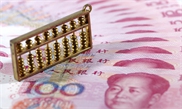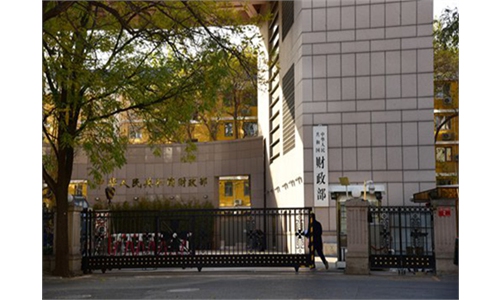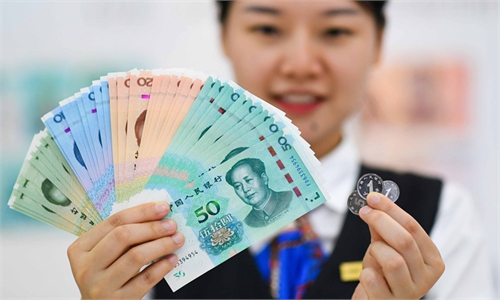Interest rate swap connect system launched between mainland and HK as nation expands financial opening-up
Milestone in opening-up of China's bond, interbank financial derivatives markets

A view of Hong Kong Photo: VCG
A much-anticipated program that allows mutual access to interest rate swap markets between the Hong Kong Special Administrative Region (HKSAR) and the Chinese mainland started on Monday, marking a milestone in the opening-up of the mainland's bond and interbank financial derivatives markets.
The Northbound Trading of Swap Connect provides a convenient and secure channel for international investors to trade interest rate swap products in the mainland via a link between institutions in HKSAR and the mainland. The program aims to facilitate global investors' management of interest rate risks arising from their holdings of mainland bonds.
At the initial stage, eligible products will include interest rate swap contracts, and the yuan will be the quotation, transaction and settlement currency. The initial net daily trading quota for Northbound Swap Connect is set at 20 billion yuan ($2.9 billion), according to the People's Bank of China (PBC), the central bank.
"As another important move in China's financial market opening-up, the launch of the Northbound Trading of Swap Connect fully demonstrates that the central government attaches great importance to strengthening and enhancing the city's status as an international financial hub, ," Pan Gongsheng, a deputy governor of the PBC, said in a speech at its launch on Monday. "The mainland is firmly determined to support Hong Kong's long-term prosperity, stability and development."
Eddie Yue, chief executive of the Hong Kong Monetary Authority (HKMA), said on Monday the program will create favorable conditions for global investors to increase their participation in the onshore bond market, and carries special significance for enhancing the recognition of, and confidence in, yuan bonds in the international market.
An agreement in developing Swap Connect was officially announced in July 2022 by the PBC, the Hong Kong Securities and Futures Commission and the HKMA to promote the collaborative development of financial derivatives markets in both the Chinese mainland and Hong Kong and establish a framework for high-quality financial opening-up.
Recently, Bond Connect Co announced the first batch of 20 market makers, including Industrial and Commercial Bank of China, Agricultural Bank of China and HSBC China.
HSBC China announced on Monday that it has assisted multiple overseas institutional investors in completing yuan interest rate swap trading via the Swap Connect.
The expansion in the opening-up of China's bond market, supply of more bond products and improvement of hedging mechanisms will attract more overseas investors, especially long-term capital, to make yuan bonds part of their asset allocation, Ivy Zhang, co-head of markets and securities for HSBC China, told the Global Times.
Among the first batch of investors, Standard Chartered Bank (Hong Kong) Ltd participated in the trading of the Northbound Trading of Swap Connect on Monday.
"The program is a milestone in the opening-up of China's bond market and financial derivatives market," Yang Jing, head of financial markets for Standard Chartered Bank (China) Co, said in a press release sent to the Global Times.
The program will reinforce the foundation for China's financial opening-up in terms of product supply, provide improved and convenient risk management tools for overseas investors to participate in China's bond market, and strengthen their confidence for in-depth participation in China's bond and financial derivatives markets, Yang said.
Since the Shanghai-Hong Kong Stock Connect was officially launched in November 2014, the program and integrated development between Hong Kong and the mainland have yielded tangible results. In March, Hong Kong implemented a new Hong Kong dollar-yuan dual counter model as part of its domestic securities market.
In the future, the authorities will unswervingly boost the high-level opening-up of the country's financial market, support the HKSAR as an international financial center and maintain national financial security, Pan stressed.
At the ceremony on Monday, HKSAR Chief Executive John Lee Ka-chiu expressed gratitude for the strong support of the central government and relevant government agencies, as well as the efforts of relevant institutions in the mainland and Hong Kong.
Lee said the HKSAR government will give better play to Hong Kong's distinctive advantages of enjoying the strong support of the motherland and being closely connected to the world under the One Country, Two Systems policy, and further promote two-way investment between Hong Kong and the mainland, boost the yuan's internationalization and strengthen the city's standing as international financial center.
"Against the backdrop of a potential recession and unfolding banking crisis in the West, China's two-way financial opening-up and stable economic growth will make it a 'safe haven' for international investors," Dong Dengxin, director of the Finance and Securities Institute of the Wuhan University of Science and Technology, told the Global Times on Monday.
With a sound financial system and infrastructure as well as internationalized financial market regulation system, Hong Kong's role as a bridgehead that connects global resources and the Chinese mainland should be given further play in attracting overseas investors, Dong said.
In sign of the growing attractiveness of the mainland's financial market, the cumulative net inflow of northbound capital has reached nearly 200 billion yuan since the beginning of this year, according to media reports.
According to date released by the State Administration of Foreign Exchange on Monday, foreign capitals posted net purchase of mainland stocks for two months in April, reflecting global investors' growing confidence in China's economic prospect and yuan assets.



